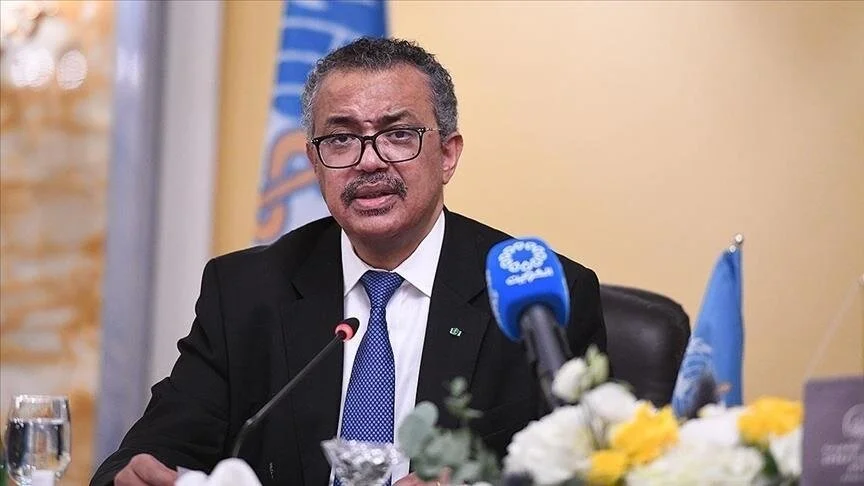

By Anadolu Agency
GENEVA
Since 2018, 477 million more people are enjoying the benefits of universal health coverage, the World Health Organization (WHO) chief said on Monday.
“We have made progress and closed gaps,” Tedros Ghebreyesus said.
“But on current trends, fewer than half the world’s population will be covered by the end of the UN Global Goals era in 2030, meaning we must at least double the pace,” Ghebreyesus urged during his address to the World Health Assembly.
Ghebreyesus called this year’s High-Level Meeting on Pandemic Preparedness and Response “a valuable opportunity” for leaders to chart a clear path forward toward that future.
“When the next pandemic comes knocking, and it will, we must be ready to answer decisively, collectively and equitably,” he said.
Recalling that the COVID-19 pandemic has shown that it’s not a billion people but eight billion people who need to be better protected, he said.
“The pandemic has blown us off course, but it has shown us why the UN Global Goals must remain our north star, and why we must pursue them with the same urgency and determination with which we countered the pandemic,” he added.
Health tax
Ghebreyesus stated that one of the “key ways” countries are doing that is through the use of health taxes in the fight against non-communicable diseases.
Between 2017 and 2022, he said that 133 WHO member states increased or instituted new health taxes on harmful products, including tobacco and sugary drinks.
Also, “encouraging progress” in eliminating industrially-produced trans fat from the global food supply has been seen, he said.
“Since we launched our REPLACE initiative in 2018, we have seen a six-fold increase in the number of people protected by WHO-recommended policies on the use of industrially produced trans-fat, from 550 million people to more than 3.7 billion,” he added.
According to WHO chief, the intake of salt, a major risk factor for cardiovascular disease, has been significantly reduced in many nations.
Regarding climate change, he recalled the launch of the Alliance on Transformative Action on Climate Change and Health, which is supporting 65 countries to build climate-resilient and climate-friendly health systems, at COP-27 in 2022.
The World Health Assembly, which began on Sunday and will end on May 30, will determine the immediate and longer-term plans of the WHO, starting with its budget for the next two years, key decisions about sustainable financing, and efforts to improve its processes and accountability mechanisms.
We use cookies on our website to give you a better experience, improve performance, and for analytics. For more information, please see our Cookie Policy By clicking “Accept” you agree to our use of cookies.
Read More